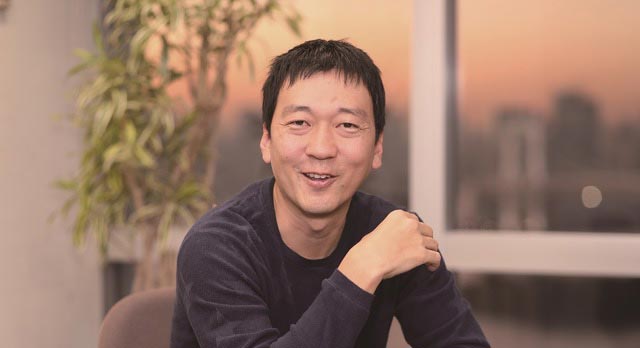While the current format landscape faces pressures such as tight budgets, declining linear viewership and consumer fatigue with the array of choices on offer, there’s always a demand for new genres in the market, according to Ryuji Komiya, Fuji Television Network’s head of unscripted format sales. “Fuji TV has a variety of genres of formats to offer, from classic titles to innovative new concepts, allowing us to flexibly respond to market needs.”
The company had its game competition format Run for Money commissioned for a fourth season in China and has seen interest in several other Asian and European markets. Additionally, its new format VS School—The Ultimate Hide and Seek, another game competition, has been optioned in Germany. Classic titles such as Hole in the Wall and The Noise, distributed by Fremantle, have been commissioned in Hungary and Mexico, respectively. “Looking ahead, we believe there is a strong demand for classic format titles in the market,” Komiya says. “Thus, we are optimistic about relaunching our renowned Iron Chef title in 2025.”
Komiya adds that to secure a pickup today, new concepts must possess elements that appeal to younger audiences. “Due to the decline in linear viewership, our aim is to captivate younger generations and encourage them to watch TV,” he says. “One of our latest formats, VS School—The Ultimate Hide and Seek, features a large-scale hide-and-seek game set in a whole school! Celebrities disguise themselves as real-life props, such as pianos and tree stumps, while students must find all the hidden celebrities within a set time to win the prize. This segment, part of our Saturday prime-time program The New Key, has gained immense popularity among young viewers in Japan.”
Fuji TV’s well-known titles such as Hole in the Wall and Iron Chef continue to perform and are returning or getting recommissioned in the market over the years. “With tight budgets everywhere in the world, everyone is looking for a format that is well-branded instead of taking a risk on a new format or unknown format from abroad, and I think our two top formats are being recognized as well-branded,” Komiya says.
Meanwhile, demand for Japanese scripted formats has increased as of late, according to Yuri Akimoto, Fuji TV’s head of scripted format sales. She says this is in part due to the rise of Korean content on the global stage. “Japanese scripted formats have been highly demanded, especially among Asian countries, but recently, we are receiving more offers from Europe and America. We think it can be said that the increased demand for Korean content has also led to greater attention being paid to Japanese content, which is culturally similar. We are receiving many offers from abroad, especially for content with universal themes and feasible with low budgets.”
Fuji TV has numerous formats available in its archive, too. “While a single format may not entirely meet the market’s needs, we can leverage these formats to co-produce an entirely new show,” Komiya says. “For instance, one of our ongoing projects with our French partner StoryPlus involves using some of our classic formats to create an original game show tailored for the French market. This approach allows us to adapt the Japanese original format to better suit local preferences, thereby saving costs while ensuring the format’s reliability.”
 TVFORMATS
TVFORMATS


